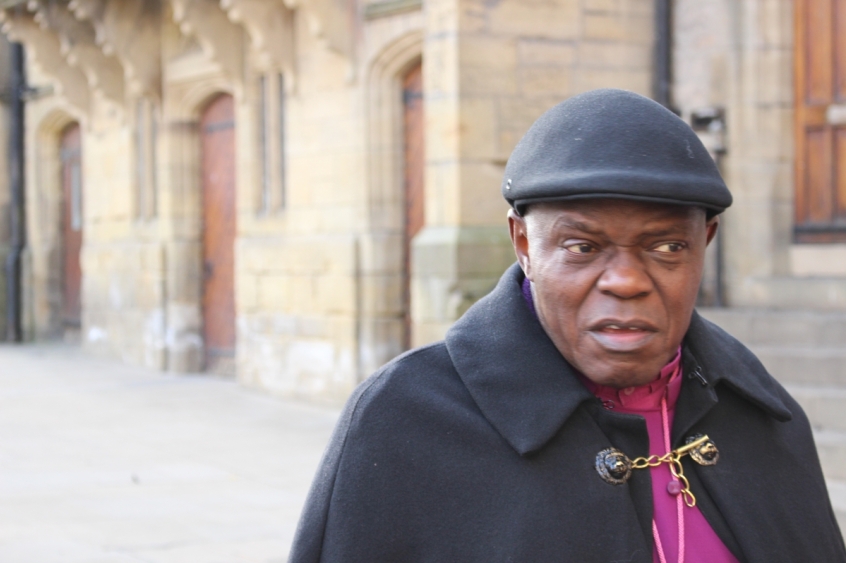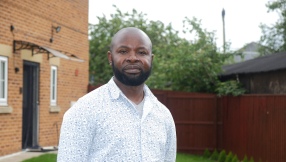The Archbishop of York has made an impassioned attack on the government's plans to roll out its flagship welfare reform nationally.
Universal Credit is designed to simplify the UK's immensely complex welfare rules and make it easier for people to transition from welfare to work. However, it has been slammed by MPs from all sides because it will leave vulnerable people waiting weeks for payment.

Now Dr John Sentamu has waded in to the debate and urged a pause.
Writing in the Sunday Times, he said the concept of a single source for welfare payments 'sounds neat and attractive' and that it was a biblical principle that those who could work should do so. However, he added: 'What we now need is an honest and courageous evaluation of the way the principle of universal credit is working in practice.'
He said it was 'grotesquely ignorant' to assume poor and vulnerable people had a 'nest-egg' to tide them over while they were waiting to be paid. Millions of people, especially those in need of support, are 'already in debt and have nothing to fall back on. If their rental payments lapse, they are at risk of eviction. That means, in the case of families with young children, an additional burden for their local council, which is obliged to house them and whose resources are already stretched to breaking point.'
He pointed to figures from the Joseph Rowntree Foundation charity estimating that official figures for those in poverty would increase by almost 500,000 people because of the four-year freeze on benefits that began last year, and to the rise in food bank use, describing it as 'a 21st-century phenomenon of which I'm both proud and embarrassed'.
He concluded: 'I want to be proud of our national care for today's "widows and orphans", too. Adjustments to the system of universal credit would go a long way in that direction.'
According to the Sunday Telegraph, the Prime Minister is on the verge of making concession on the issue, which some commentators have described as the government's 'poll tax' in reference to the debacle that helped bring down a previous Conservative government.













